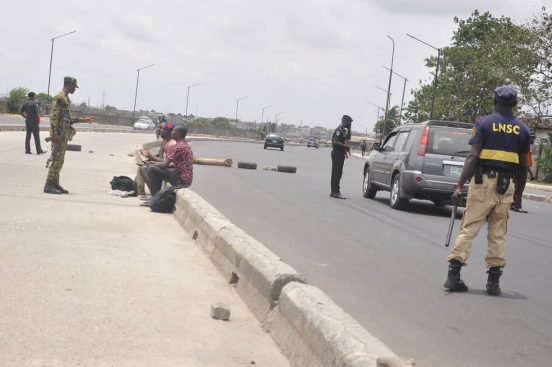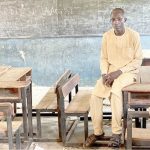The directive to have telecoms services suspended for two weeks in Zamfara State evokes the memory of a similar attempt to neutralize an overpowering cult of terrorists. In 2013, when Boko Haram’s onslaughts overwhelmed the military, the Jonathan-led federal government authorized the shutdown of telecom networks in the insurgency-ravaged Borno, Yobe and Adamawa states. Whatever the outcome of this tactic, the operational might of the targets today is a valid reason to reflect on the repeat of this experiment.
Six months ago, the National Security Adviser, retired Major-General Babagana Monguno, declared Zamfara State a ‘no-fly zone’ at the end of a National Security Council meeting in Abuja. This decision was opposed by the state governor, Bello Matawalle, who would go on to say, “the security council doesn’t understand the nature of the security problems in Zamfara state,” and that “Nigerians are waiting to see the outcome of the security council resolution to see if these bandits would be crushed”.
- Intrigues as PDP bigwigs battle for 2023 presidential ticket
Despite huge pay, senators, reps, fleece aides
But what Matawalle didn’t admit was that Abuja’s intervention was an indictment of whatever superior strategies he had rolled out to counter the terrorists in his state. His controversial amnesty arrangements, especially the cows-for-arms swap and the clampdowns on the political backers and sponsors of the kidnapping and killing gangs, were lauded at first and seemed like the long-awaited solution, but the joke became pronounced when killings and abductions continued, along with the suspicion that the repentant and pardoned “bandits” were crawling back to the forests.
Auwalu Daudawa, the terrorist leader who masterminded the abduction of over 300 schoolboys in Kankara, Katsina State, may remain the most memorable embarrassment in Zamfara’s amnesty programme. He submitted to the programme and got pardoned and rewarded. He achieved celebrity status and was romanticized by the media before he suddenly renounced his repentance. He was killed in a turf war.
Understandably, Matawalle has no absolute control over the military and the police, and so his options are limited. Perhaps it’s time to let the federal government take the lead and for him complement their tactics as best as he can. Being terrorized by gangs that had the audacity to, even recently, attack visiting governors’ convoys implies that a new strategy is desired, and what comes out of this blackout may predict the future of the catastrophe.
The two-week telecom blackout is intended to frustrate coordination among the terrorists and their informants, but this solution is short-lived and comes with devastating economic consequences. The terrorists aren’t going to disappear after lounging in their dens with dead phones for a few days, and this underlines the misguided outrage over the proposed solution proffered by the minister of communications and digital economy, Dr. Isa Ali Pantami: the linking of National Identity Number (NIN) to mobile phone numbers.
The pain spelt out as the hindrance to NIN registration is a sacrifice that must be made. The truth is, Nigeria can’t offer any lasting security without a comprehensive national database of citizens, residents and visitors. At the end of the blackout, the bandits and kidnappers are still going to transact via their phones and demand ransoms via numbers with untraceable users or owners. So, what happens after the blackout?
As North shuts down at an aggrieved pace, the other parts of the country are opening up to new opportunities and modern ideas. But the region largely enabled the silencing of these havocs that brought it here. Most of the loudmouths who called down fire and brimstone when Jonathan was in power have since found wisdom in silence, and no longer turning their pulpits to chambers of political commentaries because the subject of their fierce Al-qunut and curses would be a fellow northerner and Muslim.
Indeed, we didn’t get here by chance. When “banditry” became a fad, a section of northerners was reluctant to call out the president. I remember, in the early days of Buhari’s government, a friend told me about a Boko Haram attack at his village in Borno State and I asked, “Why didn’t you report it?” He said he didn’t do so because that could arm the pro-PDP critics to mock his electoral choice or insinuate that he was regretting his faith in Buhari. He chose to let the killings at his village go unreported to save face.
We are paying for such reverse patriotism—our collective silence. Whether we are prepared for the cost is another dilemma. Our informal economy has been destroyed by this unwavering and misnamed terrorism; families are being relegated to abject poverty one ransom at a time, markets are being shut down and schools are too under lock and key for fear of attacks. The only things that haven’t suffered amidst this chaos are the unaccounted allocations, especially the dubiously spent “security vote”, earmarked month in, month out.
So, what next after the blackout in Zamfara? A repeat of the experiment in other states? Almost all the things that have kept economically disadvantaged Nigerians alive life have either been banned or suspended, and these comprise commercial motorcycles, sale of fuel in jerrycans, sale of petroleum products in marked areas, weekly markets, transportation of livestock. Some states went as far as blocking roads to prevent movement.
Some of these solutions have been in place since things began to fall apart when the policymakers took charge in 2015, and yet with no cogent results. It’s rather tragic that while people in other states are busy studying for exams and taking advantage of the opportunities advertised by tech incubation hubs around them, the concern in the North isn’t even that the people are lagging. The people just want to stay alive. But in this contest of the most extreme ideas to “punish,” do we acknowledge the security implication of the consequent mass poverty?

 Join Daily Trust WhatsApp Community For Quick Access To News and Happenings Around You.
Join Daily Trust WhatsApp Community For Quick Access To News and Happenings Around You.


